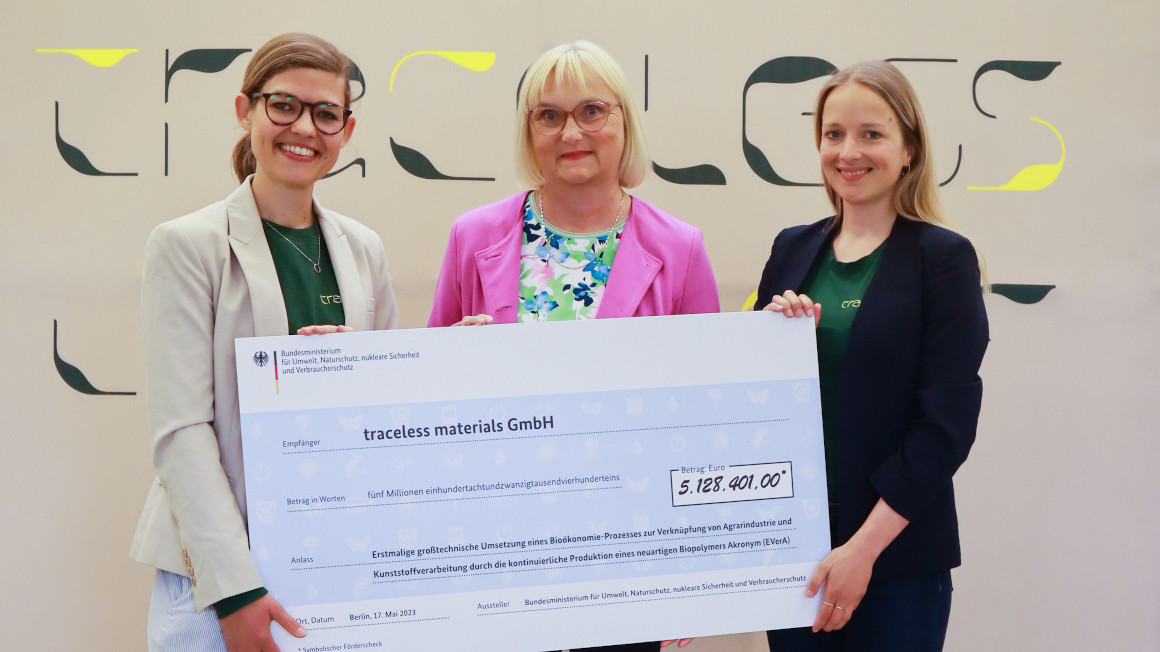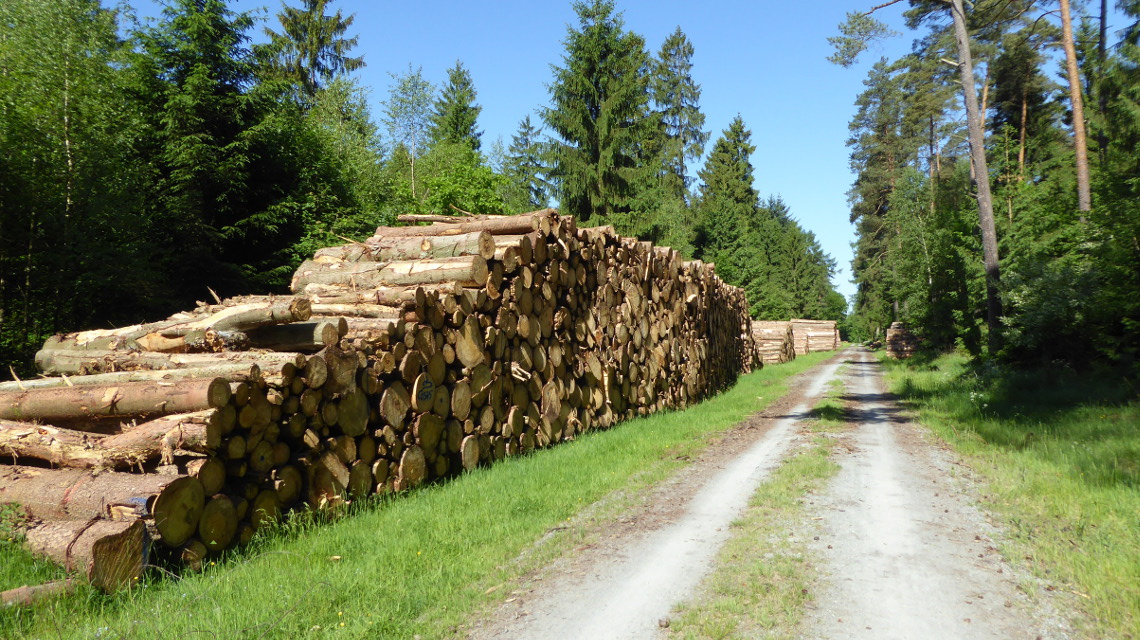Million euro funding for traceless
Bioeconomy start-up traceless materials receives 5 million euros from the German Federal Ministry for the Environment (BMU) to build a demonstration plant.

Only recently, traceless launched the biomaterial they had developed with a pilot product in the form of a sock holder. Just under three years after its founding, the young bioeconomy start-up is now going into large-scale production. The team led by traceless founders Johanna Baare and Anne Lamp has just received a grant of 5 million euros from the German Federal Ministry for the Environment.
Demonstration plant planned in Hamburg
The start-up intends to use the money to prove the large-scale implementation of its innovative technology and build a demonstration plant in Hamburg. The plant is expected to replace several thousand tons of conventional plastic annually and help "significantly save CO2 emissions, fossil resources, water and agricultural land." In parallel with the expansion of the technology, the team will work with its customers and partners to develop further pilot products using the non-marking material, the startup announced.
"The experts from the Ministry of the Environment and the Federal Environment Agency have comprehensively examined whether our technology actually contributes to environmental protection. The funding approval is a great confirmation of this," says Managing Director Anne Lamp. Co-founder Johanna Baare adds: "To make a real contribution to solving plastic pollution and the climate crisis, we need to produce our materials on an industrial scale. The planned demonstration production plant is the next step on this path, and the grant is an essential contribution to its funding."
Biomaterial from residues of industrial grain production
Traceless uses natural polymers from plant residues to produce the biomaterial. The novel plastic alternative is available in the form of granules. It can be further processed using standard technologies in the plastics and packaging industry. Visually, the biomaterial resembles conventional plastic, but it is completely compostable and can thus be disposed of in organic waste. According to traceless, 91% of CO2 emissions and 89% of energy consumption from fossil fuels are saved compared to conventional plastic in production and disposal. The technology is now patent pending and has already received several awards - most recently the German Founder's Award. For the further development of the technology, the young company, founded in 2020, received a grant of 2.4 million euros from the European Innovation Council (EIC).
bb


